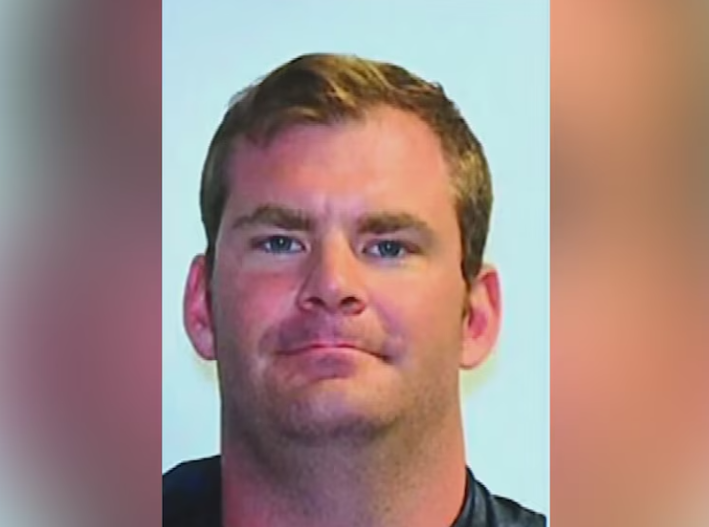On New Year's Day, a highly decorated Green Beret, Matthew Livelsberger, died by suicide in a tragic and dramatic explosion outside the Trump International Las Vegas Hotel. The 37-year-old soldier, known for his exemplary military service, left behind messages revealing his internal struggles and frustrations, shedding light on the toll of combat and the challenges of mental health support within the military.
Livelsberger, a five-time Bronze Star recipient, including one with a "V" device for valor, had served multiple tours in Afghanistan. Despite his decorated career and recent fatherhood, Livelsberger privately battled depression, post-traumatic stress disorder (PTSD), and what friends believe were symptoms of traumatic brain injury (TBI). These conditions were exacerbated by the mental and physical toll of witnessing death and taking lives in combat.
The soldier's struggle was highlighted in messages he shared with Alicia Arritt, a former Army nurse he dated in 2018. Arritt, who had treated traumatic brain injuries during her service at Landstuhl Regional Medical Center in Germany, recognized symptoms in Livelsberger early in their relationship. "He would go through periods of withdrawal and struggled with depression and memory loss," Arritt recalled, adding that she encouraged him to seek help. However, Livelsberger hesitated, fearing a diagnosis could end his deployment eligibility.
The circumstances leading to Livelsberger's death involved a rented Tesla Cybertruck packed with fireworks, gasoline cans, and fuel canisters. Authorities confirmed he died from a self-inflicted gunshot wound moments before the explosion, which injured seven bystanders but caused no fatalities. Despite the dramatic nature of the incident, law enforcement officials emphasized it was a case of suicide rather than a terror attack. "Although this incident is more public and more sensational than usual, it ultimately appears to be a tragic case of suicide involving a heavily decorated combat veteran who was struggling with PTSD and other issues," said Spencer Evans, FBI special agent in charge of the Las Vegas division.
Two letters found on Livelsberger's phone expressed his frustrations with leadership and societal issues, referring to the event as a "stunt" and a "wake-up call." He lamented the state of the country, mentioning income inequality, homelessness, and disdain for diversity initiatives. Despite speculation, officials stated Livelsberger harbored no ill will toward President-elect Donald Trump and noted his admiration for Trump, Elon Musk, and Robert F. Kennedy Jr.
Livelsberger's wife, who had recently separated from him following a dispute, told investigators she did not believe he intended to harm anyone. His sudden return to the U.S. for the holidays came after being deemed stable enough by military officials to take leave from his deployment in Germany.
The explosion outside the Las Vegas hotel has raised broader questions about the mental health challenges faced by veterans. Pentagon Deputy Press Secretary Sabrina Singh urged service members to seek support, saying, "If you feel that you need to seek any type of mental health treatment, or just to talk to someone, there are services available." However, Arritt and others close to Livelsberger believe the military failed to provide timely and adequate care.
The soldier's actions have also sparked debate over the stigma surrounding mental health in elite military units. "There was a lot of stigma in his unit," Arritt said. "They were, you know, big, strong, Special Forces guys there, there was no weakness allowed and mental health is weakness is what they saw." This stigma, combined with the pressures of deployment, often deters soldiers from seeking the help they need.
Livelsberger's death is part of a troubling trend among veterans grappling with the aftermath of service. A report by Bot Sentinel in 2021 revealed the prevalence of online harassment against Livelsberger and his peers, often exacerbating their mental health struggles. The soldier's letters and his choice of a high-profile location for his death underscore his desire to draw attention to these issues.
As investigators continue to analyze the incident, they have ruled out connections to a separate New Year's Day truck attack in New Orleans, emphasizing the lack of evidence linking the two cases despite similarities in method. Tesla CEO Elon Musk assisted the investigation by providing access to the Cybertruck's data, which helped track Livelsberger's journey from Colorado to Las Vegas.
Livelsberger's story highlights the complex intersection of military service, mental health, and societal pressures. His death serves as a somber reminder of the need for comprehensive support systems for veterans returning from combat. If you or someone you know is struggling, the Suicide & Crisis Lifeline at 988 offers free, confidential support 24/7.






